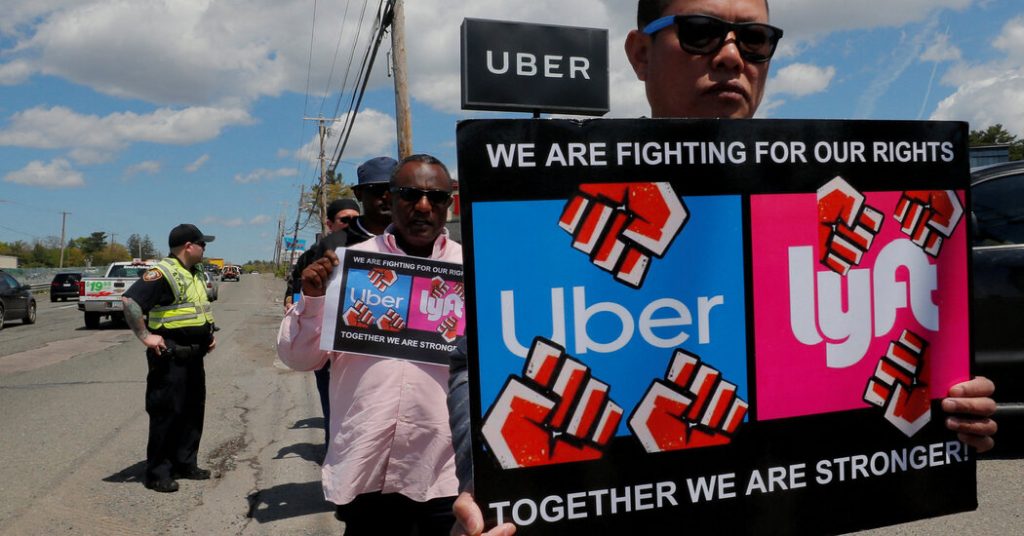The Evolution of Gig Economy Regulations: Uber and Lyft’s Landmark Settlement in Massachusetts
The gig economy, characterized by its flexible, freelance jobs as opposed to permanent roles, has seen explosive growth over the past decade, spearheaded by companies like Uber and Lyft. However, this growth has not been without its controversies, particularly around the rights and compensations of gig workers. A significant chapter in this ongoing debate unfolded recently in Massachusetts, where Uber and Lyft settled a years-long legal dispute with the state’s attorney general, marking a pivotal moment for gig workers’ rights in the United States.
Understanding the Settlement
Key Terms of the Agreement
Uber and Lyft agreed to pay $175 million to settle claims of violating state labor laws, with the bulk of this sum earmarked for distribution among gig workers in Massachusetts. This settlement, though significant in financial terms, also included concessions from the ride-hailing giants regarding minimum pay rates and benefits for drivers while maintaining their status as independent contractors.
Benefits for Gig Workers
The attorney general of Massachusetts secured notable benefits for gig workers, including:
- A health insurance plan for drivers working more than 15 hours a week.
- Expanded accident insurance.
- A minimum pay rate of $32.50 per hour during rides.
This set of benefits is among the most comprehensive that gig workers have received in the United States, aligning with similar provisions in states like New York, California, Washington State, and Minnesota.
Independent Contractor Status Remains
In a victory for Uber and Lyft, the settlement upheld the classification of drivers as independent contractors. This classification is a core aspect of the gig economy, offering flexibility for workers but often at the cost of traditional employee benefits and protections.
Broader Implications
Comparison with Other States
Massachusetts’ settlement is part of a broader pattern of states negotiating or legislating around the terms of gig work. Each state’s approach varies, reflecting local political, economic, and legal landscapes. For instance, California’s Proposition 22, passed in 2020, similarly allowed gig workers to remain independent contractors while providing some benefits.
The Future of Gig Economy Legislation
The settlement in Massachusetts may serve as a model for other states grappling with the challenges of regulating the gig economy. It strikes a balance between flexibility for the companies and protections for workers, potentially offering a template for future legislation or settlements.
The Business Perspective
Uber and Lyft have long argued that their business models rely on the flexibility that comes with the independent contractor status of their drivers. This settlement allows them to maintain this crucial aspect of their operational structure, which they see as crucial for providing flexible work opportunities.
Pros and Cons
-
Pros:
- Provides a set of comprehensive benefits for gig workers.
- Maintains the flexibility prized by both companies and many gig workers.
- Avoids a potentially costly and unpredictable ballot initiative.
-
Cons:
- Some argue it doesn’t go far enough in providing protections equivalent to those of traditional employees.
- The $175 million payment, while substantial, is spread among a large number of workers.
- Maintaining independent contractor status keeps some worker vulnerabilities in place.
Future Predictions and Trends
As the gig economy continues to evolve, similar settlements may become more common, with states opting to negotiate directly with companies rather than engaging in protracted legal battles. These agreements could lead to a gradual improvement in conditions for gig workers, though activism and legislation may still be necessary to address ongoing concerns fully.
FAQ
Q: Does this settlement apply to gig workers outside Massachusetts?
A: No, this settlement specifically addresses Uber and Lyft drivers within Massachusetts but sets a precedent that may influence other states.
Q: Are Uber and Lyft drivers now considered employees in Massachusetts?
A: No, the settlement maintains the status of drivers as independent contractors while providing additional benefits.
Q: How will the $175 million be distributed among drivers?
A: Details on the distribution process have not been fully disclosed, but most of the settlement is intended for direct compensation to gig workers.
Q: Can Uber and Lyft change the benefits or minimum pay rate in the future?
A: Changes to the agreed-upon benefits or pay rates would likely require further negotiation or legal action, as they are now part of a legal settlement.
Conclusion
The settlement between Uber and Lyft and the attorney general of Massachusetts marks a significant moment in the ongoing debate around the rights and protections of gig workers. While it preserves the flexibility of the gig economy model, it also introduces benefits and protections that could significantly improve gig workers’ quality of life. As the gig economy continues to grow, the outcomes of such settlements will be crucial in shaping its future, balancing the needs of workers, companies, and consumers in the evolving landscape of work.
